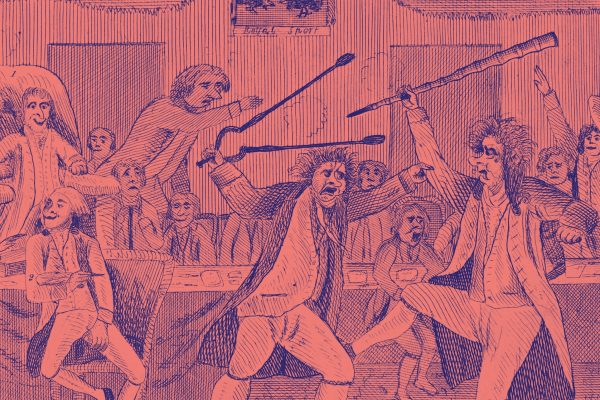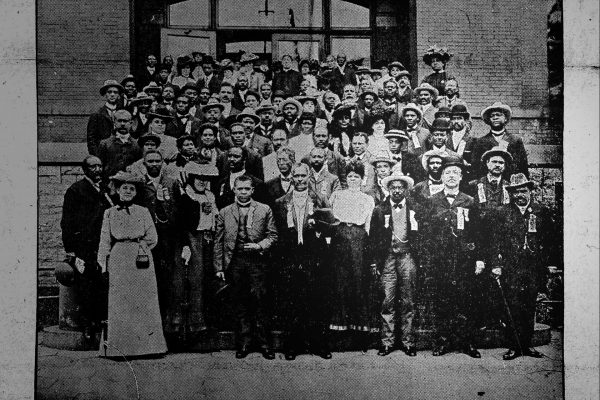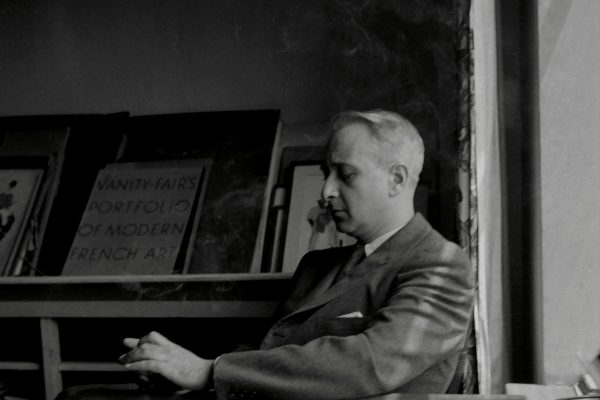Smart Citizens, Smarter State
Beth Simone Noveck
Harvard University Press, $29.95 (Cloth)
Transparency, like all blandly positive terms, is a tricky concept. We want people to know enough about what goes on in government to check its excesses, but not so much that they become too cynical or are overloaded with useless information—the balance Elena Fagotto and Archon Fung describe in “Too Much Information: Making Transparency Good for You.” We want enough secrecy that politicians and bureaucrats can deliberate freely, but not so much that it encourages “corruption” (another vague term).
Transparency concerns citizens’ ability to understand what the government is doing. Government intelligence—the state’s capacity to understand its citizens and the world—is in many ways the flip side of transparency. We want the state to know enough to carry out its functions effectively, but not so much that it can oppress its citizens; surveillance, after all, is just one form of knowledge gathering. Designing systems that strike this balance is difficult, particularly when people disagree vehemently over which functions the state should carry out. The checks and balances that resolve one tension sometimes exacerbate the other.
This is the starting point for Beth Simone Noveck’s Smart Citizens, Smarter State, which lays out a blueprint for bringing expert knowledge to government. Noveck’s previous book, Wiki Government, detailed a system for crowd-sourcing reviews of patent applications, which allowed the U.S. Patent and Trademark Office to draw on peers’ specialized knowledge to determine whether an application was patent-worthy. This vastly increased the ability of overworked patent examiners to make informed judgments, effectively making one small piece of the federal bureaucracy much smarter. Now, Noveck wants to show that this type of expert knowledge–gathering can scale up and work for other areas of policy.
The book outlines several tools for bringing knowledge to government, some of which are already in practice. Noveck is enthusiastic about databases that allow agencies to locate people with specialized knowledge, such as the Food and Drug Administration’s Profiles software, which speeds up medical device review by identifying academics and FDA scientists with relevant expertise. She dedicates nearly as much space, though, to non-governmental platforms for crowdsourcing, such as the data science community Kaggle, which offers prizes for better solutions to programming challenges, and the popular Q&A message board Stack Exchange. Her goal is a hybrid of the two: a twenty-first-century Brain Trust that would “enable decision-makers to push out requests, questions, challenges and invitations” to a diverse array of credentialed experts and interested citizens (perhaps competing for prizes or social media-style badges)—a unified platform for government knowledge collection.
But the fraught relationship between transparency and government capacity is a stumbling block. Regulations that originated as attempts to make corporate influence on policy-making less covert, such as the Federal Advisory Committee Act (FACA), make it extremely difficult for the government to seek outside expertise when the need arises. Others, such as the Paperwork Reduction Act (PRA), were intended to limit the state’s power to burden the public but now make it difficult for the government to take advantage of even the most basic new tools for information gathering, such as web surveys. Consequently, Noveck proposes a new legal and regulatory framework that starts with a “high-level pronouncement in support of smarter governance.” While Noveck suggests some workarounds in the event that FACA and PRA can’t be overhauled, it’s clear that her ideal outcome would be a sweeping reworking of the laws controlling the government’s ability to gather knowledge.
The ultimate goal of Smart Citizens, Smarter State is not simply a more competent regulatory state, but a transformed relationship between government and the governed. To policymakers and bureaucrats, Noveck makes the case that soliciting citizen expertise can make governance more effective; to democratic theorists, Noveck argues that providing expertise is a genuine form of civic engagement, and that it can help remedy the “broken, staccato rhythm of citizen engagement today” with something more substantive and sustained.
Noveck is right to suggest that we should start to think of providing expertise as another form of engagement like protesting or voting. Tufts University’s Peter Levine estimates that at least one million Americans are members of organizations thatpractice “open-ended discussion, problem-solving, education, and collaboration with diverse peers” such as the Industrial Areas Foundation and the League of Women Voters. Levine argues that such people are an important constituency for a more participatory democracy, since they have already seen it work in practice and developed the skills involved. Noveck’s proposals would greatly increase their numbers and, perhaps, begin to accustom a portion of the public to the idea that governance can and should be collaborative.
Few consequential policy changes are politically neutral, and Noveck’s is no exception: A “smarter state” is desirable only if the government will use its capacity to implement good policies on balance. Since American conservatives tend to doubt this, many of them will likely be hostile to Noveck’s agenda as they have been to other tools of government intelligence. In 1995, for example, Newt Gingrich’s new Republican majority shut down Congress’ Office of Technology Assessment, which provided Congress with analysis of scientific and technical issues. Other forms of government information harvesting, though, are likely to trouble liberals instead. Arguably the best recent example of public-private collaboration to make government “smarter” is the suite of intelligence programs revealed by Edward Snowden’s leaks and other investigative reporting. The National Security Administration’s extensive work with the tech world, consultation with experts, and internal data-sharing was all in the name of making the governed more intelligible to the government. Alternatively, consider the recent revelation that the CIA and the Department of Defense consulted with senior members of the American Psychological Association on the Bush administration’s torture programs, another clear abuse of expertise. To some extent, these bad outcomes can be remedied by greater transparency—another manifestation of the balancing act described above—but as the aftermath of the Snowden saga has shown, once government has access to new kinds of knowledge it is not easy to take away.
But do transparency and smarter government have the power to effect major changes, or do they give a patina of legitimacy to policy choices that are really determined by power struggles rather than deliberation? Noveck’s project might fall into the category of “solutionism” derided by Evgeny Morozov: the faith of the technocratic class in its own ability to engineer solutions to complex social problems, often by making sure people have the “right” information in their hands when they make decisions. A related species of skepticism focuses on knowledge’s flip side, transparency. This critique is typified by Jesse Eisenger of Pro Publica—an investigative journalism organization that might be expected to tout transparency—writing earlier this year that “disclosure devolves into a tool that gives advantages to the well educated and affluent over the poor and disadvantaged” if it takes the place of “hard and fast rules.” Eisenger’s critique of transparency is somewhat glib and doesn’t engage with any of the research on the subject summarized by Fagotto and Fung. Still, it’s true that Noveck’s proposals have more to offer the “well educated and affluent” who would be more likely than the disadvantaged to make use of the new opportunities to offer expertise.
Of course, no policy solution capacious enough to tackle public distrust and dysfunctional governance is going to be entirely failsafe. Noveck’s task is to introduce tools and explain how to use them, not to enumerate every situation in which they should be used. Her agenda is a great complement to another recent proposal for smarter government: Lee Drutman and Steven Teles’ case for increasing Congress’ capacity by hiring more staffers, paying them better, and strengthening in-house organs like the Congressional Research Service. Drutman and Teles argue that if we want a Congress that can resist lobbying and provide competent oversight, we need to increase its ability to think for itself without relying on talking points and fact sheets provided by interest groups. They envision a more conventional model in which the government reaches out for expertise; in combination with Noveck’s proposals, perhaps the expertise can meet them halfway.
The strongest characteristic of Smart Citizens, Smarter State is its intellectually modest approach: It builds on existing programs, can be scaled up quickly or slowly, and is predicated on experimentation rather than centralized decision-making. That makes it a great reform agenda for those who have been burned by sweeping overhauls and grandiose promises before.








